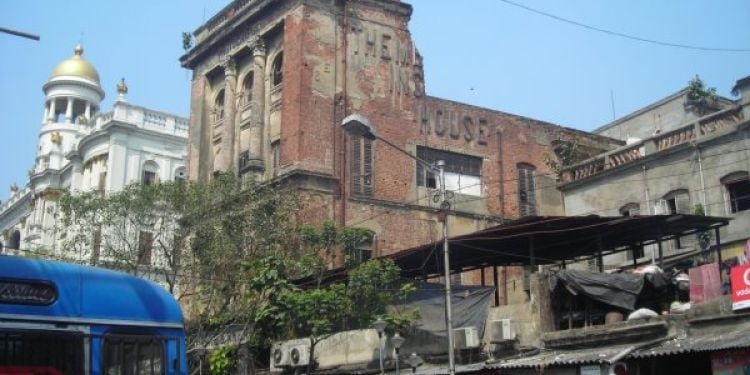
Why did you decide to move to Kolkata?
My wife was suffering from innumerable passport and visa problems, and problems from living on the other side of the world from her mother, at about the same time that I was learning of the benefits of not "belonging" to a country by becoming an expat/PT (Passing Through, Perpetual Traveller, Permanent Tourist, Prior Taxpayer, Prepared Thoroughly, etc.). Thus, instead of my wife living in San Francisco, I decided to move to Kolkata.
How was the moving process?
It was surprisingly easy. It is probably easier to shift/move halfway around the globe than to another part of town/city. In shifting/moving to another country, you usually do not have many options so you are more-or-less forced to get rid of everything that you do not absolutely need and that cannot be obtained in your new home.
Did you face some difficulties to adapt to your host country (language, culture, do's and don'ts)?
I have never had a problem with getting a Visa to India. The problem is in getting the PIO (Person of Indian Origin) Card. There are several bloggers (women, usually) here at Expat-Blog.com who have the PIO Card, and it is my impression that they got it almost automatically. For me, however, it has been an unceasing nightmare. Anything and everything that could go wrong with the application has gone wrong. My wife and I are doing our best to overcome their objections, but it may be another six months before that is done.
My wife translates everything that needs to be translated for me (that is how I am able to review Hindi films somewhat effectively). However, I have always thought that it was important to learn Hindi. Before and shortly after my arrival, I studied various books and the CD-ROM from Rosetta Stone. As I studied more, I encountered the hurdle of conjugating verbs; I think that conjugating verbs may be the bane of studying any language.
It did take me a very long time to adapt to the food, water and climate here, and now I think that I am neither more nor less sick than I would be in San Francisco.
Regarding do's and don'ts, it seems as if everybody says that you should not use your left hand. Although everybody seems to say this, I have yet to find anyone who actually objects to this. It has been my experience (both in the United States and in India) that right-handed people are not observant regarding which hand is being used. However, foreigner has an instance of one person objecting.
What surprised you the most in Kolkata?

What surprised me the most about Kolkata is what surprised me the least. Before my first visit to Calcutta (as it was then called), the diplomats at the Consulate General of India-San Francisco told me that Calcutta was an extremely crowded city. Because I was told that, that is what I expected, and that is in fact what I experienced. However, when I returned to San Francisco, a city that I had always thought of as being big and heavily populated, the city suddenly seemed so small.
As a blogger, I read many blog posts, at least two of which discussed "reverse culture shock", a concept that I had never heard of before. I think that my experience is an example of it.
Could you please share with us something you like about Kolkata and something you don't like?
Something that I like about Kolkata: the people. There are those who are concerned about providing good customer service, and respecting and helping you. The labourers are extremely hard-working. Except in the outlying and newer areas, cranes are not used to build buildings. Thus, they (both men and women) carry many bricks on their heads up several storeys to build the walls.
Something that I don't like about Kolkata: the people! People have different (and often bad or disgusting) habits. If you see a man then he most likely spits on the ground (and I have seen a few women who do this, as well). However, this habit seems to be dying out.
A common belief about India which wasn't right...
As I have said, I used to live in San Francisco, where virtually everyone or everyone's parents was from another country, so there was a clearer, more objective viewpoint of life in other countries. However, I believe that someone did ask me whether or not there were cars in India.
I do remember watching an episode of The Simpsons in which Apu states that he graduated first in his class of 2 million/20 lakh at a Calcutta university (poking fun at the enormous population of Kolkata and India) and in which the city was portrayed as a village.
Other than those, I have not heard or read of other misconceptions of India. Its current reputation as being the Rape Capital of the World is, unfortunately, correct.

What do you miss the most from the US, your home country?
I suppose that what I truly miss is travelling. In San Francisco, I knew where everything was and I knew where everything else was, as well. I did not own a car nor even know how to drive, but I knew the appropriate websites or locations to get the tickets so that I could travel by local bus, Greyhound, Metro, local train, Amtrak or ferry. I felt comfortable in visiting anyone or anyplace, even though I had not been there previously.
In Kolkata, we do not have a car and although there are an equal (or more) number of ways of travelling, travelling seems to be far more stressful (at least, for me) here.
What does a typical day as an expat in Kolkata look like?
Being an expat in Kolkata is much like being an American in the United States, a Canadian in Canada, a Vietnamese in Vietnam, a Malaysian in Malaysia, or a Brazilian in Brazil.
As for me, specifically, when I am not writing on my blog and communicating to others, I am usually assisting/following Caroline in the things that she needs to do (such as going to banks, shopping for things, and going to the doctor).Which advice would you give to people wishing to live in Kolkata?
Visiting Kolkata (or anywhere in India) is somewhat easy; living in India is difficult. To live in India with greater ease requires a Student Visa (which may not be applicable to most people wanting to live in India), a Work Visa (which I have read is extremely difficult and cumbersome to get), a PIO Card (Person of Indian Origin-which applies to those who are married to an Indian citizen, which seems to apply to many members of Expat-Blog.com) or an OCI (Overseas Citizen of India).
Having said that, I would suggest that those who do want to live and can live in Kolkata learn Hindi or Bengali. Other than the tourist district, and the more expensive neighbourhoods, English is not well known. Other than the taxi drivers who park their taxis along Sudder Street, I have not found any taxi driver who speaks more than a few words of English.
To find a place to stay (for rent, as only PIOs, OCIs and Indians can own property) I highly recommend Sulekha and MagicBricks. Expat-Blog also has a forum in which accommodation is offered. Of course (most likely) while you are looking for a place to stay long-term, you will need to find a hotel for the short-term. Visit anyplace before moving there. You do this in your home country. You make sure that the neighbourhood has good schools (if you have, or will have, children). You make sure that there are doctors and/or a hospital nearby. You make sure that there are stores nearby from which you can purchase your day-to-day items.
Although I never thought that I would end up living in Kolkata, I did visit Kolkata and even Mumbai several times before arriving here to reside. I know that it made my transition easier.




















Comments
4